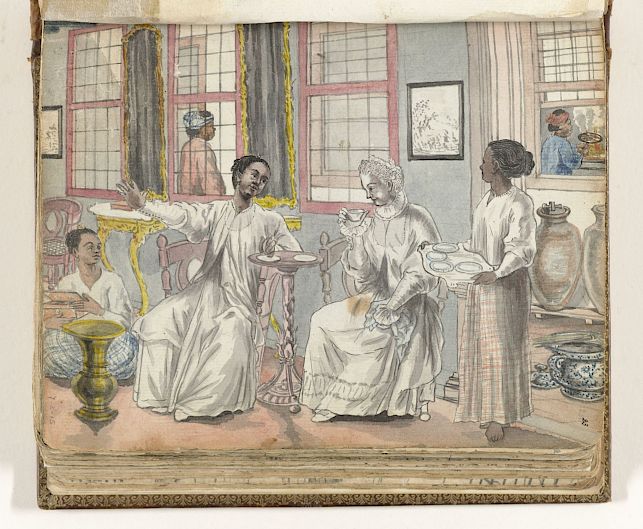What We're Reading This Week

Kristie Flannery
Simukai Chigudu, "'Colonialism had never really ended': my life in the shadow of Cecil Rhodes," The Guardian
“After growing up in a Zimbabwe convulsed by the legacy of colonialism, when I got to Oxford I realized how many British people still failed to see how empire had shaped lives like mine—as well as their own.” Simukai Chigudu is Associate Professor of African Politics at the University of Oxford. His biographical essay shares his experiences growing up in Zimbabwe and going to England as a young man in a powerful account of how the legacies of colonialism, including racism, shaped his transatlantic life.
Clare Corbould and Mike McDonnel, “Why the alt-right believes another American Revolution is coming,” The Conversation
Clare Corbould and Mike McDonnel explain why the alt-right believes another American Revolution is coming. The essay provides insight into how myths about the American war for independence are shaping violent movements to overturn the results of the last of the US election.
Rijksmuseum, Rijksstudio
Amsterdam’s Rijksmuseum has made over 700,000 artworks available for free online. We are enjoying exploring this rich digital collection of paintings, maps, and material objects, many of which have deep connections to the global and imperial past.
Steve Pincus, A. Zuercher Reichardt, and Tiraana Bains, “Thinking the empire whole,” History Australia
“Thinking the empire whole,” a forum in History Australia featuring Steve Pincus, A. Zuercher Reichardt, and Tiraana Bains, considers how people working for and struggling against the British empire understood its global nature. This is an important read if you are interested in the global turn in history.
Nicholas Sy
Rebecca Gimeno, “Lo que la Venecia medieval le puede enseñar al Estados Unidos del siglo XXI,” NIUS
Globalization allowed medieval Venice to cultivate new institutions that kept its economy dynamic and its people socially mobile, but its elites progressively changed the rules of the game. This process of social stratification is said to resemble the United States’ on-going descent into inequality today.
Kimberly Richard, “Discover the surprising history of ‘Silk in Africa’ at the Dallas Museum of Art: Moth to cloth: Silk in Africa is on view through October 24,” NBC DFW
Wild silkmoths are found in both Madagascar and Nigeria, and domesticated Mulberry silkmoths were introduced to Madagascar from China in the nineteenth century. This brief interview with Dr. Roslyn Walker, senior curator at the Dallas Museum of Art, talks about the African production, use, and trade of silk.
China Global Television Network “Live: Witness of an ancient friendship at East King of Sulu's tomb 坐高铁看中国——大运河畔苏禄王陵”
Published by CGTN, a government mouthpiece, this documentary is not only a guided tour of a fifteenth century Southeast Asian Sultan’s tomb in Shandong, eastern China, but also a catalog of twenty-first century diplomatic overtures between China and the Philippines.
Christopher Szabla
David Armitage, "When companies were kings: New perspectives on imperial history," Times Literary Supplement
In a review of two new books focused on the history of the Indo-Pacific world, David Armitage discusses ways that scholars in both international relations and history are opening new horizons for their fields against earlier notions of a historically state-centric world and of the origins of the Age of Revolutions in the Atlantic, specifically. Armitage also points out how different disciplinary approaches to these subjects remain divided by their distinct understandings of theory and complexity.
David A. Bell, "I wanted to rule the world," London Review of Books
Discussing a new book on the global scope of the Napoleonic Wars, David Bell questions how much emphasis should be placed on their geographic breadth. While the study opens up fascinating new angles such as the Napoleonic obsession with using Iran as a base against British India, Bell demonstrates how the wars remained a mostly European conflict compared to previous conflicts like the Seven Years' War.
Benjamin Thomas White, "How eurocentric is the 1951 UN Refugee Convention—and why does it matter?" Refugee History
Benjamin Thomas White, Senior Lecturer at the University of Glasgow and an expert commentator on refugee studies, delves into the discussion about the ways the UN Refugee Convention was limited to Europeans when it was first introduced as well as some very recent, thoughtful critiques. The result is a nuanced discussion in which White determines that structural more than legal factors indicate the persistence of Eurocentrism in today's refugee politics.